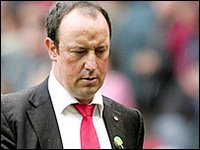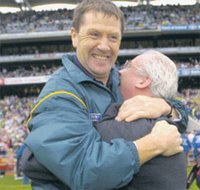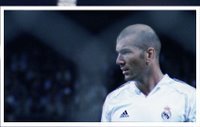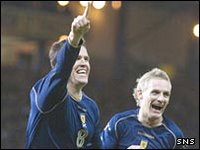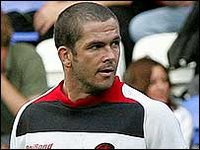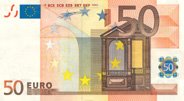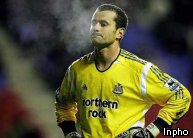Munster Add Guile To Their Grunt
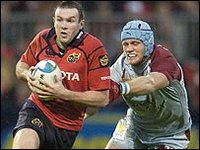
Not to be formulaic and predictable, but let's, like last week, begin with a snifter of Heineken. With the competition now breaking for the November internationals it was an important weekend for the combatants: would they send their international players off with a jaunty, top-of-the-table skip in their step, or a doleful, bottom-spanked trundle?
Of our gallant provinces, Munster are the only ones heading for the international break whistling a happy tune, their official Irish Rugby knapsacks on their musclebound backs. Not only have they grasped control of Pool 4 like a playground bully putting a headlock on a bespectacled Maths geek, but they made a big statement about their intentions for the tournament.
Those within the Munster camp have made it repeatedly clear that they did not see the achievement of finally winning the Heineken Cup as an end in itself, rather that last May's emotional heave for glory would be the first of several triumphs which would anoint the province with that true holy grail of baubles: the mantle of greatness.
However, as fiercely powerful a force that Munster rugby is and as stirringly as that has been often demonstrated in recent years, it was clear to dispassionate observers - a rare breed within the heady confines of Thomond Park - that the province would need to add something to their game to continue to keep their noses ahead of the pack: a little dash of spice to their normal, hearty fare.
Staying the best is a little like running to stand still. You must keep improving to stay at the top, despite the fact that the evidence of your improvement - usually gained by comparison with your peers - is invisible, as it appears that you are simply staying in the same position. This often causes successful sports teams and individuals to believe that merely carrying on with what they have been doing will assure them of continued pre-eminence, and is usually the reason for their regression into the chasing bunch.
Possessing all the requisite qualities in the pack (leavaing recent flutterings in the lineout aside for the moment) and the telepathy of Ronan O'Gara and Peter Stringer at half-back had got them this far; to progress further - or hold their position, if you like - Munster clearly had to bring a back-line cutting edge to bear in situations when teams would simply not be bludgeoned into submission by the force of a maul, or by the pressure or their loose play yielding penalties for the exocet boot of O'Gara.
About this time last year, Barry Murphy was breaking into the Munster team at centre, his bold, weaving lines of running seeming to bring to Munster, at last, some indigenous back-line flair to add to the province's peerless forward grunt. Murphy was especially impressive in the final pool game triumph over Sale at Thomond, but sustained an injury in a Celtic League match against Ulster which ended his season.
Munster went on to rely on traditional values in the three victorious games that followed, but last Saturday against Bourgoin Murphy - in tandem, it must be said, with his colleague at centre, Trevor Halstead - took up where he had left off in last season's group stages.
In general, Munster revealed an expansive, improvisational running game, dovetailed, for good measure, with a delightful lineout move for Frankie Sheahan's try and a trad-maul for Donnacha O'Callaghan's. Murphy was a constant, gain-line breaking force, and his guile fitted perfectly with Saturday's announcement of the next stage of this Munster side's progression. That they brought the quick and powerful Lifemi Mafi for Halstead suggest that Munster might just be doing the necessary to stay ahead of the game.
The other two provinces had less rosy weekends. Leinster are only ever 80 minutes away from disaster, and were rarely at their best against Edinburgh. But I would hold back the usual stinking bucket of rotten fruit that gets chucked in the direction of O'Driscoll and co. on these occasions. The trip to Edinburgh was always viewed with trepidation, especially as that team had defeated an almost full-strength Munster at Thomond Park a few weeks ago.
The eerie atmostphere generated by 5,000 souls within the cavernous Murrayfield did not help the game in general - you get the impression Leinster showbiz stars need the big stage to bring out their best material. Neither did the referee's harshness on the Irish side with regard to penalties awarded - albeit the officials did allow Leinster a try despite a clearly forward pass by Shane Horgan to Luke Fitzgerald.
Most of all, Leinster's pool is a bit of a curate's egg. Agen lead after an impressive victory at Gloucester, but needed a late penalty to beat Edinburgh at home. Edinburgh are tough, but limited (a big part of Leinster's dismay over Sunday's defeat would be that they outscored their vanquishers by three tries to one). All will take points off each other and none of the teams possesses Leinster's level of talent. You also suspect that Leinster will notch of more bonus points. All things being equal, Leinster are still favourites to progress.
Ulster's disappointment should be greater. There was a sneaky feeling abroad that the northerners were ready to step up and challenge Munster and Leinster as the island's leading side. Celtic League success, a good pack, an excellent half-back combination in David Humphreys and Isaac Boss and the flair of Andrew Trimble all suggested that the opening day humbling of Toulouse was no fluke.
But Ulster never looked like beating Llanelli at Stradey Park - a not inconsiderable task admittedly. The Scarlets pack dominated, Dwayne Peel and Stephen Jones controlled and Ryan Jones was at his marauding best in combining with his dashing back line team-mates. Ulster always seemed on the back foot.
Still, being another of those pools without a whipping boy Italian side, this pool remains open enough and a bonus point for Ulster makes up for the one they missed out on against Toulouse last week.
All three provinces are alive, then, but, as ever, the Munster men have the bragging rights in the Irish dressing room for the next few weeks.
....Read more!

